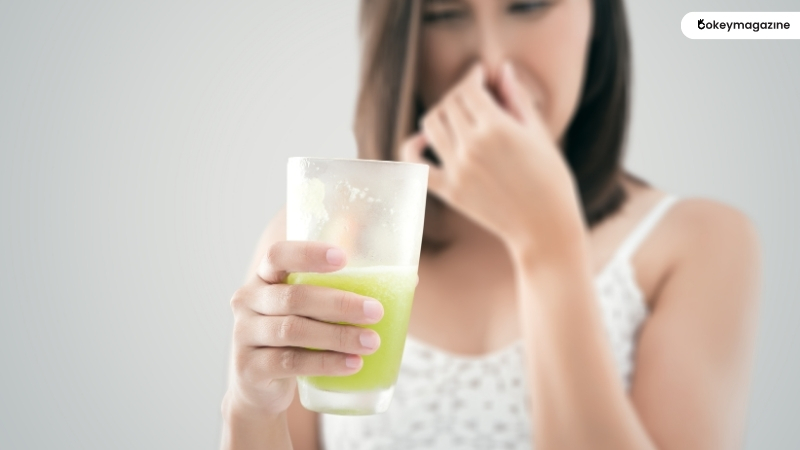
Is It Okay to Use Expired Lemon Juice? Understanding the Shelf Life!
If you are anything like me, needing to learn more about how certain food items go bad and expire, then this is the right place. So, today, I will be talking about whether lemon juice goes bad or not.
Yes, lemons dry up in 4 to 5 days and get spoiled. But you might ask, ‘What if I take out the juice of lemons? Doesn’t it spoil now?’ And the answer is yes. However, lemon juice has a longer shelf life than the fruit itself but is not resistant to expiration.
Now, if you wanna know does lemon juice go bad or not, then this is the place you wanna be; keep reading to find out.
Lemon Juice Expiry date – Fresh VS Store-Bought
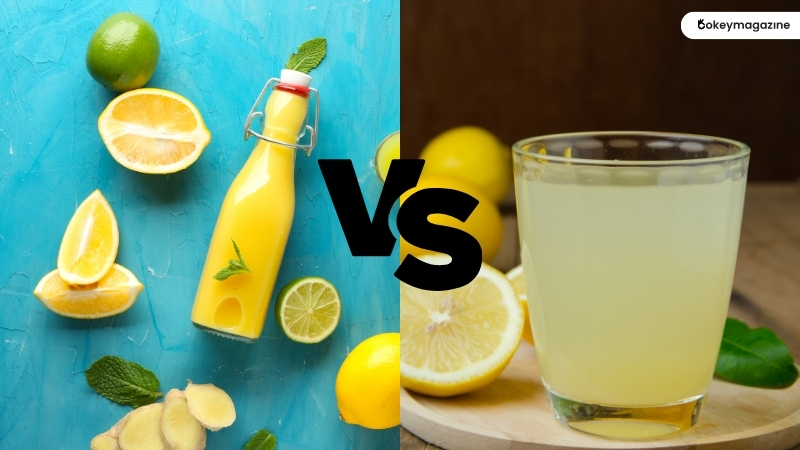
Criteria related to the expiration date of lemon juice are that the type of lemon matters to determine its expiration date. Whether the lemon juice is fresh or store-bought is another factor.
Store-bought bottled lemon juices are essentially mixes of concentrated lemon juice and water, giving a similar taste to freshly squeezed lemon juice.
Lemon oil, among other preservatives, may be added, often giving the lemon juice an extended shelf life. They can last long if they are unopened. If they are stored properly, they can last for more than six months.
However, fresh or homemade lemon juices are pure 100% lemon juice with no added preservatives or pasteurizing. If you have backyard landscaping ideas, you can totally grow your lemons! This allows a longer shelf life, and you see the spoilage much quicker.
Signs That Lemon Juice Has Gone Bad
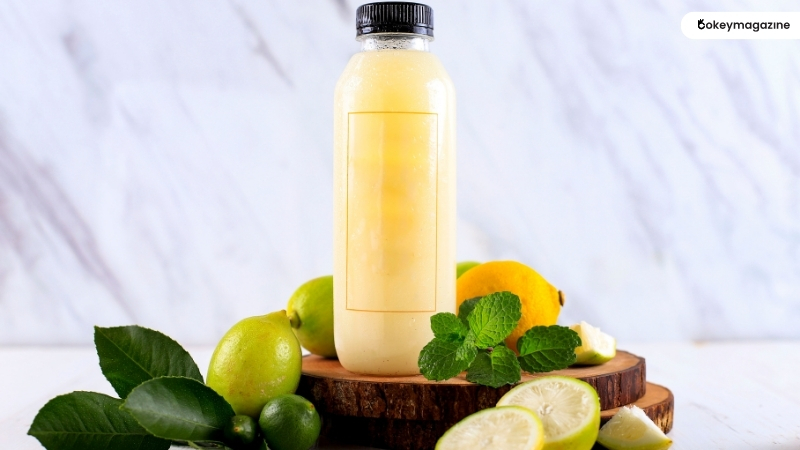
The timing of when lemon juice expires may cause several different health issues, but the most prevalent one is diarrhea or other food poisoning.
According to the National Institutes of Health (NIH), it is easy to get food poisoning after consuming expired lemon juice. Food poisoning can show symptoms such as,
- Nausea
- Chills
- Vomiting
- Diarrhea
- Stomach aches
- Cramping
- Physical weakness
Lemon juice is used in many different dishes and desserts; if the lemon juice has gone bad, it will spoil and contaminate the whole dish.
Now, you may ask me what exactly happens if lemon juice goes bad, and why should we not use it for cooking dishes as an ingredient. So, to know more, just keep scrolling.
1. Off Smell
- Fresh Lemon Juice: It has a fresh smell of citrus, which is bright and refreshing.
- Spoiled Lemon Juice: It takes a sour, pungent, or musty odor. The smell can be rotting fruit or vinegar-like when it has gone through the fermentation process.
3. Color Change
- Fresh Lemon Juice: Generally clear with a vibrant yellow color.
- Spoiled Lemon Juice: It can be darker, for instance, orange or brownish in color. Cloudy can also mean that it is no longer fresh. If you can see some sediment floating, that could also mean it has gone bad.
3. Bad Taste
- Fresh Lemon Juice: It is sour yet sharp, balanced with acidity and sweetness.
- Spoiled Lemon Juice: It can be too sour, astringent, or even a little metallic. The taste may also be flat, or it can leave some kind of weird aftertaste in your mouth.
4. Separation
Normal Separation: A slight separation is somewhat normal with natural lemon juice – the pulp and the juice may settle.
If the separation seen is thick layers or more than usual, it is spoiled. This point becomes even more evident if the separated liquid in the jar is discolored.
5. Mold or Particles floating.
- Fresh Lemon Juice: no mold or any floating particles visible to the naked eye in the product.
- Spoiled Lemon Juice: Visible mold can appear as white cotton patches or a grayish-white dusty film over the top. Any floating particles, especially if they are colored differently or are in clumps, could be a sign of spoilage.
6. Changes in Texture
- Fresh lemon juice has a thinner, more watery consistency.
- Spoiled Lemon Juice: The juice may thicken or become syrupy, and sometimes it can even result in a gel-like state. This is due to the juice undergoing some kind of fermentation or even oxidation in the air, whereby it starts to break down.
7. Packaging Issues
Check on Packaging: Inside a bottle or a carton, the lemon juice is packed. If the container is swollen or leaking or the seal is broken, the juice might show signs of bacterial spoilage or decomposition.
Tips for Storage
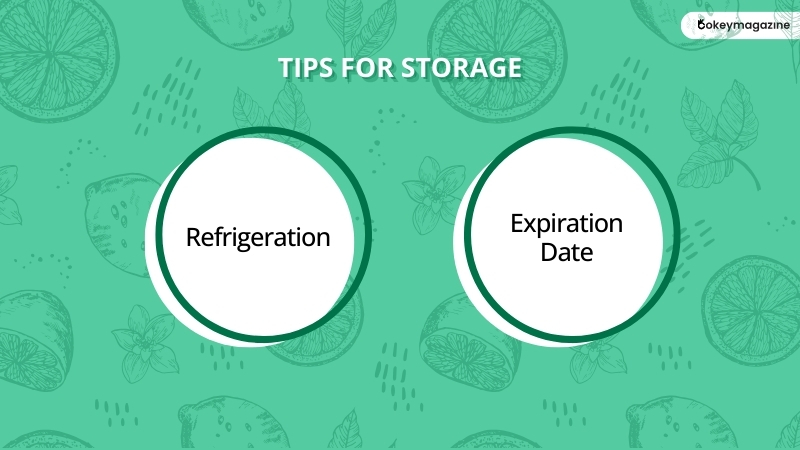
- Refrigeration: Freshly squeezed lemon juice should be refrigerated in an airtight container, and if freshly squeezed by the operator, it is best consumed over a period of several days. Commercial lemon juices contain preservatives and can last longer than this but should be kept in the refrigerator after their seal is broken.
- Expiration Date: When purchasing lemon juice from the market, one must look for an expiration date and follow it accordingly.
Safety Considerations
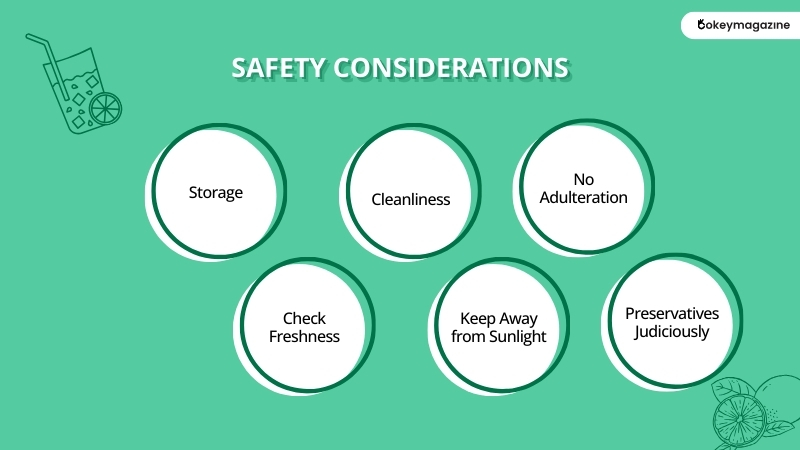
Now that you know the answer to your question, whether lemon juice goes bad, the next step for you to take is to consider safety usage. Following is some safety and storage advice that might help keep the lemon juice fresh and edible:
Storage
- Refrigeration: Lemon juice should always be refrigerated. This would delay the bacterial multiplication process, and it would remain fresh for a longer period. Lemon juices extracted at home must be kept in a clean, airtight container.
- Container: Tightly sealed glass or plastic container. Glass containers are usually preferred over other types. Metal containers are to be avoided because they are prone to react with the juice’s acidity, hence affecting its flavor and safety.
Cleanliness
- Clean Utensils: Lemon juice is easily adulterated with bacteria if the utensils touched are not clean. Moreover, you should avoid touching the inside of the container or the juice with your hands.
- Bottling of Lemon Juice into Sterilized Containers: Allow the least chance of adulteration by filling lemon juice into sterilized containers.
No Adulteration
- Sealed Up: The container should, of course, be sealed whenever not in use. Oxidation can only occur with exposure to air, leading to spoilage.
- No Double-Dipping: Whenever using lemon juice in certain recipes or drinks, always dispense what you may need rather than reaching directly into the container to avoid bacteria entry.
Check Freshness
- Changes: Also, get into practice observing whether there is any discoloration, a smell develops, some taste alteration, or a change in texture. This gives you enough assurance that you will not drink spoiled juice.
- Store-bought Lemon Juice: For store-bought lemon juice, one must follow the “use by” or best expiration date set on store-bought bottles of lemon juice. Even when it is stored well, it shall not be used beyond the time set.
- Freeze Lemon Juice: Freezing lemon juice is ideal for instances when you have extra juice that you more than likely won’t be using for some time. Fill cube trays or molds with juice. Once frozen, put the cubes into a resealable plastic bag or airtight container. It helps extend shelf life, too, and will be quite useful if you need to use it in small quantities.
- Label and Date: Lemon juice should always be labeled and dated so you know how many months have passed. It will typically be good for 6-12 months in the freezer.
Keep Away from Sunlight
Store in a Dark Area: While refrigeration is important, it is equally important that concentrated lemon juice is not exposed to direct sunlight or any other sources of heat, for that would alter the quality and safety of such juice.
Preservatives judiciously
Bottled Lemon Juice: Most commercial lemon juices have added preservatives like sodium benzoate or potassium sorbate to extend their shelf life. Opened bottles will keep better in the refrigerator.
Alternatives to Using Expired Lemon Juice

There are a couple of alternatives to using expired lemon juice, which partly depends on the purpose for which you want to use the lemon juice. They include:
Fresh Lemon Juice
If fresh lemons are available, one only must squeeze them and voilà – fresh lemon juice. This will be the best alternative to expired lemon juice and assures a fresh flavor.
Lemon Zest
This is the outer peel of the lemon that sometimes may provide quite a strong flavor in your dishes. You can grate the zest off fresh lemons and use it as flavoring in any recipe dressings or baked goods.
Lemon Extract
The high-powered flavor is mainly jam-packed with the essence of lemon flavoring; thus, this can be used instead of the juice in recipes.
However, it is not an acid in its base; hence, it can function in recipes where baked goods rely on acidity for the basic underlying taste. You can taste a similar type of acidic flavor if you taste apple cider vinegar, but before you do that, ask yourself if it is ok to drink apple cider vinegar.
Lemon Concentrate
The lemon concentrate is highly shelf-stable compared to fresh lemon juice. It is widely available in most food stores and can be used one-to-one instead of lemon juice.
Lime Juice
The lime juice can suffice for most recipes that require the addition of lemon juice. It has a somewhat different flavor but works in savory and sweet dishes.
Wrapping Up!
When it comes to the expiration date of certain vegetables and fruits, it can be quite tricky; it is difficult to tell until and unless it starts to rot.
But when it comes to lemons, it is even more difficult because you might ask yourself if lemon juice goes bad; there are a few ways of knowing it.
This article elaborately explains how to detect whether lemon juice goes bad or not so if you think that this article was then comment below and let me know.



















Post Your Comment